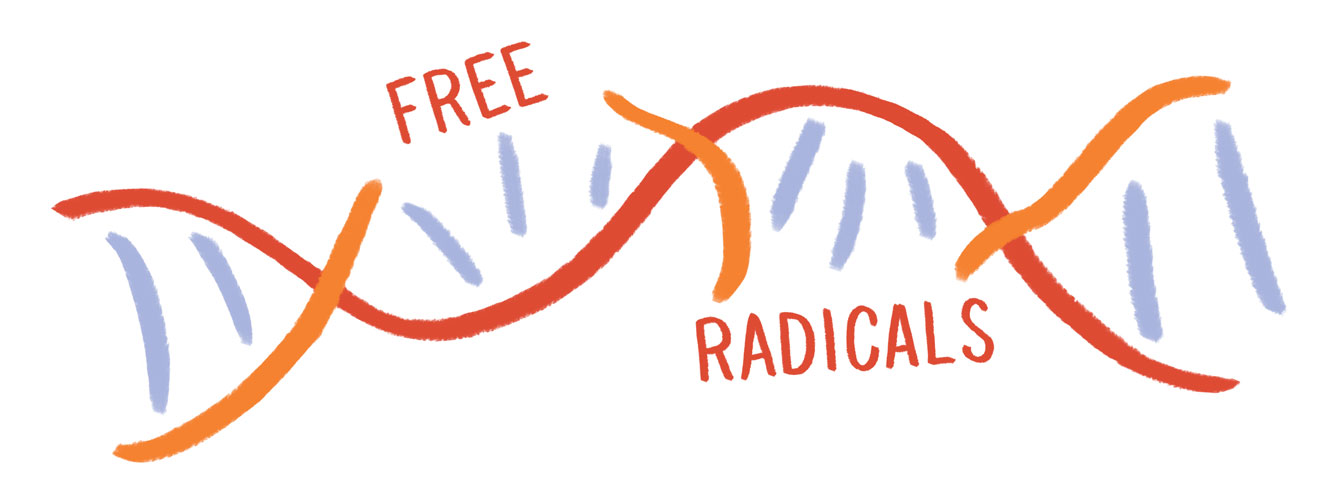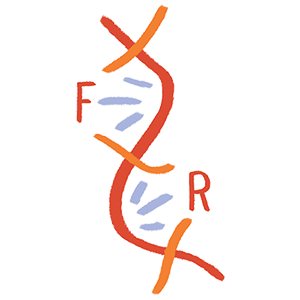
An illustration of femme scientists from a variety of fields using a microphone with the words ‘Femmes of STEM’ to break through a glass ceiling of Science History. Artwork by Keshy Jeong .
Although I know that white cis-males are not the only historical scientists of note (because that would be absurd), that doesn’t mean I know the names and stories of the scientists left out of history. However with my new favorite podcast, I am learning the names and stories I knew had to exist, but did not know where to find. Femmes of Stem, a bi-weekly podcast, tells the story of all-star femme scientists from history. In March I was lucky enough to interview the creator of the podcast, Michelle Barboza-Ramirez, who is retelling science history, one episode at a time.
How did you become a scientist?
I refer to myself as an accidental scientist. I started off college as a business administration double major and I just happened to take an elective course in geology because I really love the outdoors. I ended up switching my major to geology and three years later I graduated with a degree in science.
What made you interested in making the podcast?
I was doing my undergrad in Los Angeles where I am originally from and was surrounded by a very diverse population—a lot of Latinx people and female professors. I was in a really great place and I hadn’t really realized that there were these kinds of struggles that people of color and women in STEM face. So it wasn’t until two or three years after and I had started meeting people outside of my university that I started hearing stories about how the STEM world wasn’t necessarily friendly or completely supportive of certain people.
After getting fed up with these stories, I looked for a podcast to see if there were any telling stories about women in science. I just didn’t find a podcast like that so I created the podcast to show the stories of women, people of color, and LGBTQ+ people in STEM.
What is the podcast about?
Every episode we talk about a historical woman in STEM and I am joined by a guest who is a modern woman in STEM in the same field as the featured historical scientist. We get to talk a little bit about the history and put away this false narrative that women, people of color, and members of the LGBTQ+ community haven’t been a part of science. We talk about women from the 20th century all the way back to the 23rd century BCE—the first recorded scientist whose name we know is actually a woman. I am trying to get those facts out there and fight this narrative.
How do you do your research?
While being a full time student in my free time I was reading books about the history of women in science. I realized most of the women that I was finding were white American or Western European women. It was very noticeable that there were no other Latina women like me, no women from Asian countries, or from African countries and that was disconcerting. So then I started making a point to look specifically for women of color.
I began talking about this research with others and described how hard it was to find out about women from non-Western countries. And I don’t think people realized how racist or sexist or stupid they sounded when they replied with things along the line of “well, you know these non-Western countries haven’t been as advanced for so long so of course they wouldn’t have a lot of scientists” or “of course there wouldn’t be a lot of women in science” or “these countries are more oppressive to their women so if American women aren’t really in science how can you expect that Latin American women could be in science.” This ignorance fueled me even more.
Who are your femme heroes in STEM right now?
Right now I’ve been doing a lot of research on Enheduanna. She is a scientist from the 23rd century BCE. She’s really rad. She is the daughter of the first known emperor. She lived in Sumeria, in what is now modern-day Iraq, and she’s the first person in all of history whose name can be associated with their writings. We also learn from her writings about how she’s a scientist. She was a priestess at a temple of the moon goddess, but we’re talking about a time when being a priestess wasn’t just saying prayers, it was working at a temple that was a place of learning, a place of governance. We know this because she tracked the celestial objects that she could see from her temple. Using those celestial objects, she helped developed the first calendars that we know of.
I loved learning about her because she is the first person whose writing can be attributed to their name. Not just the first woman, not just the first scientist, but the first person. And it is this woman of color from what is now Iraq. So she’s the woman in STEM I’ve been pulling out of my pocket for the last couple of weeks to tell people about.
Ada Lovelace (1815-1852) also comes to mind. She was a countess from the 19th century, the daughter of the poet Lord Byron. Her mother had broken up with her father and decided that she did not want her daughter to be anything like him, so instead of teaching her daughter traditional poetry and writing that a woman of her class would be learning at the time, her mother taught her mathematics. Ada became a great mathematician: she’s often considered the first computer programmer because she wrote what would become the coding for what future programmers would use to create what she called an analytical engine and what we now call computers.
Wang Zhenyi (1768–1797) was a Chinese mathematician at a time when her country was very much closed off from the West but some of her writings have survived. A more contemporary woman would be Helia Bravo Hollis (1901-2001), who was a Mexican botanist who lived to be 100 years old. She studied cacti and other really cool plants. Since I enjoy gardening and botany outside of podcasting, she would be cool to talk to.
How are you feeling about science right now? What is your relationship to STEM?
People like to think of science as objective facts that cannot be tampered with or disputed, but science is very colonial and very much has an agenda. Science is theoretically objective, but it is performed by people who are subjective and have certain points of view. So when I am talking about the false narrative of women or people of color not existing in science throughout all of history, that doesn’t mean I am devaluing science — it means creating awareness so that false ideas don’t continue.
I love science. As I said, I was originally not interested in being a scientist because when I thought of science I thought of crazy middle aged white men in a lab coat with all these chemicals and math equations and this esoteric stuff that I had no business in. Then I took that geology class and realized that with science, you look at the mountain you are hiking on and you want to know why there is a mountain there. That aspect of science I love and am completely devoted to.





